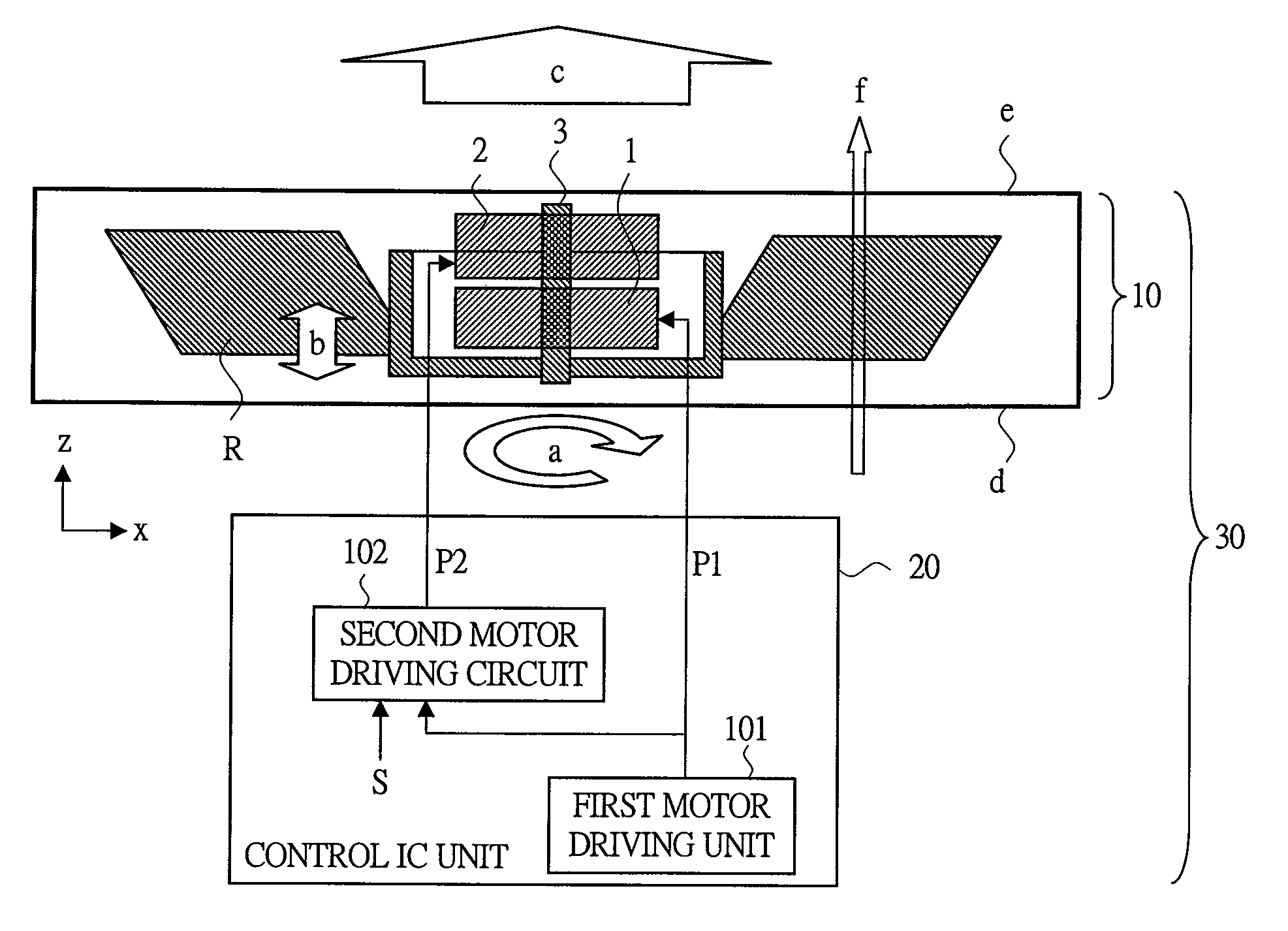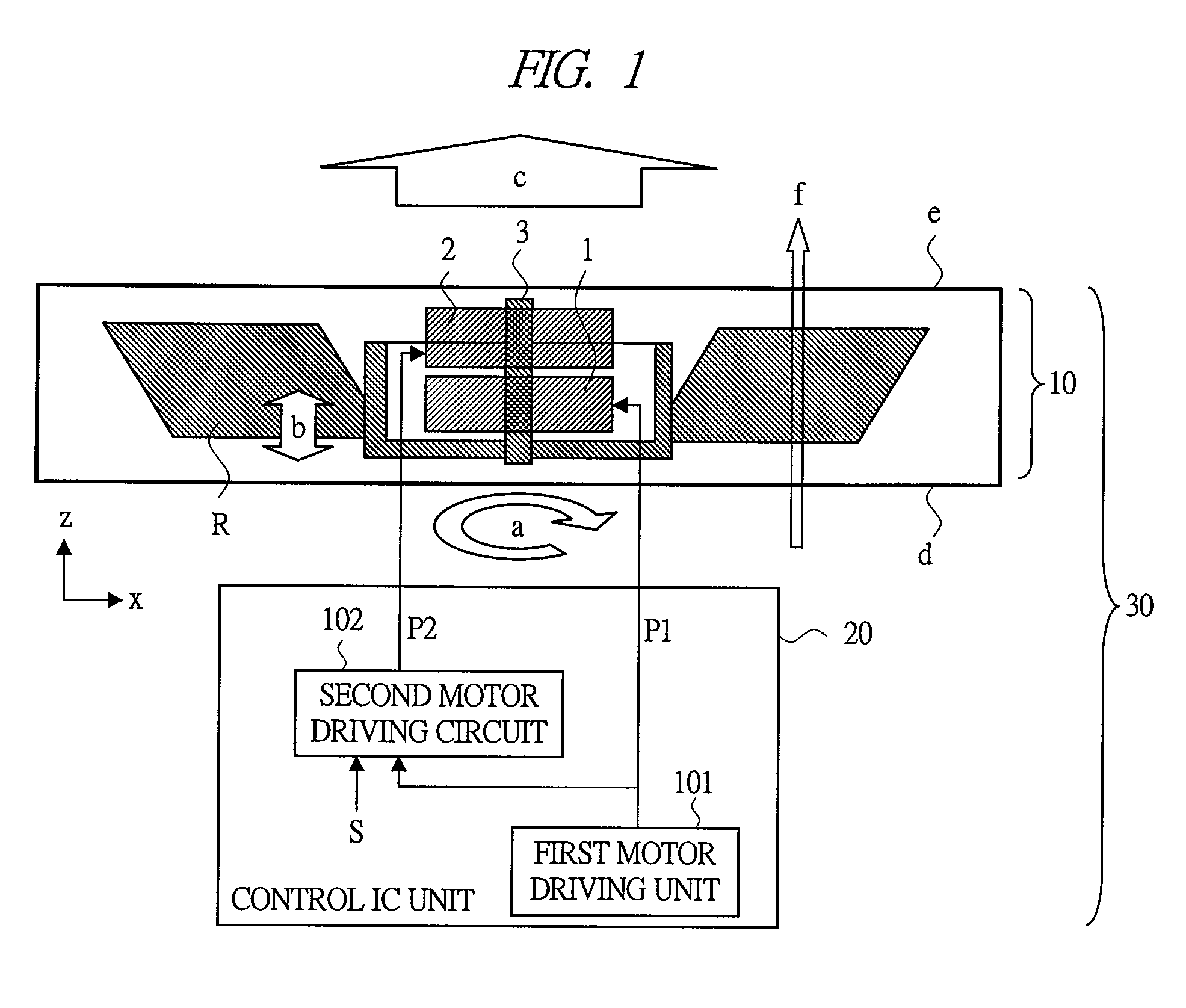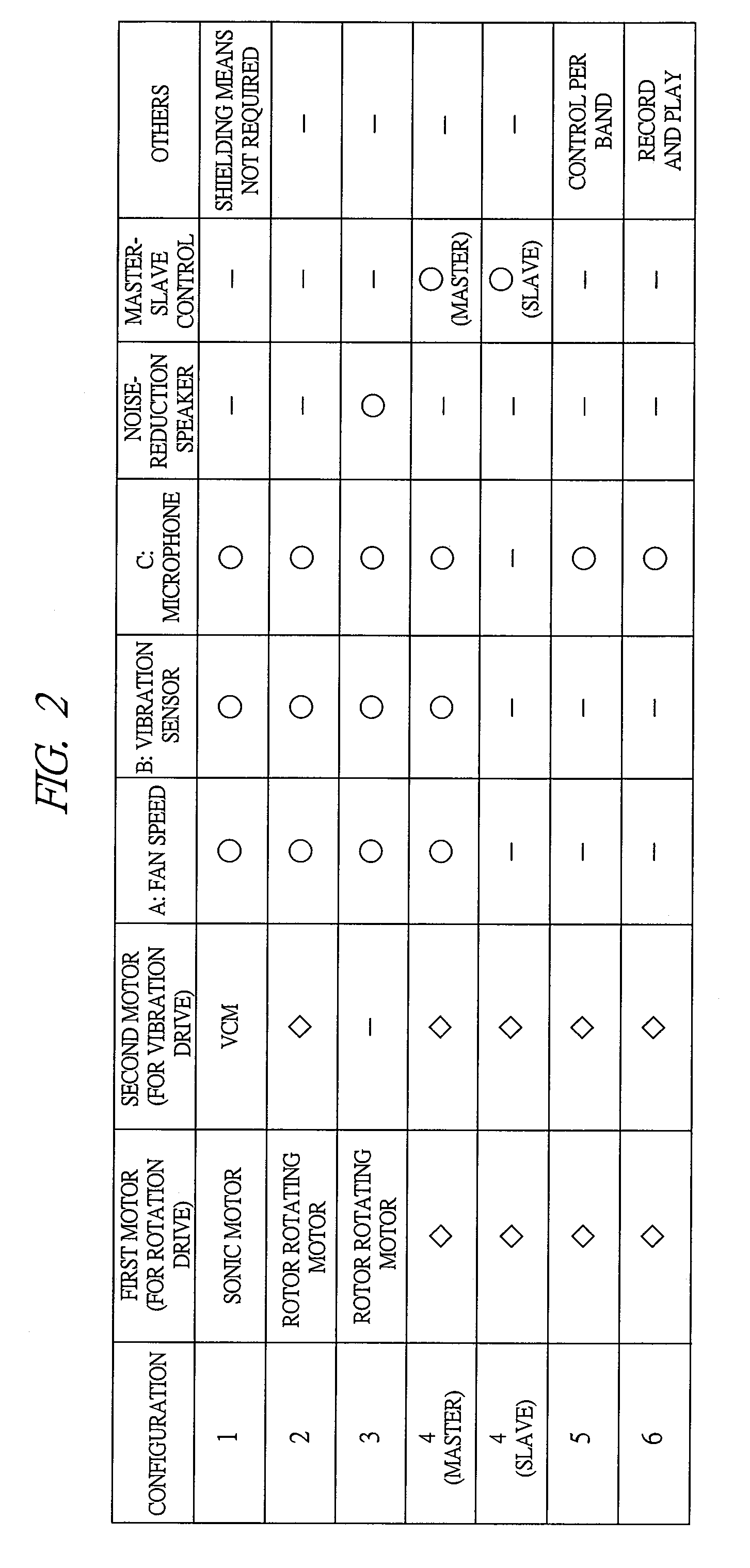Electronic device having a blower with noise control
a technology of electronic devices and blowers, applied in the direction of dynamo-electric converter control, multiple dynamo-motor starters, instruments, etc., can solve the problem of unnecessarily increasing costs, and achieve the effect of reducing the noise (emitted sound) generated by individual fans and the noise generated by fans as a group
- Summary
- Abstract
- Description
- Claims
- Application Information
AI Technical Summary
Benefits of technology
Problems solved by technology
Method used
Image
Examples
first embodiment
[0056]An electronic device 30A of the first embodiment (first configuration) of the present invention will be described with reference to FIG. 3 to FIGS. 7A to 7D, etc. The electronic device 30A has a fan 10A and a control IC unit 20A. FIG. 3 shows a cross section and a schematic configuration of the fan 10A, FIG. 4 shows details of the structure of the fan 10A (particularly, motor) in FIG. 3, FIG. 5 shows a planar configuration example viewed from the surface e of an exhaust opening side of the fan 10A, FIG. 6 shows a circuit configuration example of the control IC unit 20A, and FIGS. 7A to 7D show examples of waveforms of control performed by the control IC unit 20A.
[0057]The first embodiment has the following configuration as an overview (note that, reference numerals are corresponding to the following description). The present device has, as basic noise reduction control by the control IC unit 20A, control performed by a combination of drive-control of the fan rotation (a) by th...
second embodiment
[0096]Next, an electronic device 30B (having a fan 10B and a control IC unit 20B) of the second embodiment of the present invention (second configuration) will be described with reference to FIG. 8, etc. The part different from the first embodiment will be mainly described. An overview of the second embodiment is as described below. In the fan 10B, as well as a speaker (conventional technique), a movable mechanism in the axial direction (z direction) is provided. More specifically, the rotating and vibrating unit R (including 3B, 4, 5) can be rotated (a) about a rotation axis 3B as a rotating body and can be vibrated (b) in the z direction as a vibrator. In addition to that, when the vibration (b) according to a reversed phase with respect to noise (outputted by the basic rotation (a)) of the fan 10B is provided, noise reduction control is performed. In other words, the rotating and vibrating unit R is used as a speaker function for noise reduction control by the vibration control i...
third embodiment
[0102]Next, an electronic device 30C (it comprises a fan 10C and a control IC unit 20C) of the third embodiment of the present invention (third configuration) will be described with reference to FIG. 9 and so forth. The part different from the first embodiment will be mainly described. The overview of the third embodiment is as described below. In the electronic device 30C, the fan 10C has a configuration in which a speaker 40 for noise reduction control is embedded instead of the VCM (second motor 2). To give an outline, the second motor 2 and the corresponding circuits are replaced by the speaker 40 and corresponding circuits in the configuration.
[0103]In the fan 10C, for vibration control in the direction (z direction) of a rotation axis 3C, the speaker 40 is provided at a center position of the rotating body (including 3C, 4, 5) in the exhaust opening surface e side. In addition to that, the vibration (b) corresponding to the reversed-phase sound with respect to the noise (outpu...
PUM
 Login to View More
Login to View More Abstract
Description
Claims
Application Information
 Login to View More
Login to View More - R&D
- Intellectual Property
- Life Sciences
- Materials
- Tech Scout
- Unparalleled Data Quality
- Higher Quality Content
- 60% Fewer Hallucinations
Browse by: Latest US Patents, China's latest patents, Technical Efficacy Thesaurus, Application Domain, Technology Topic, Popular Technical Reports.
© 2025 PatSnap. All rights reserved.Legal|Privacy policy|Modern Slavery Act Transparency Statement|Sitemap|About US| Contact US: help@patsnap.com



